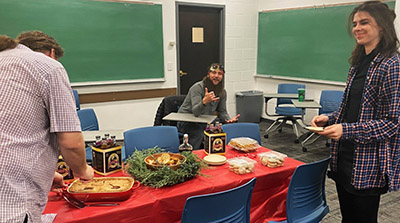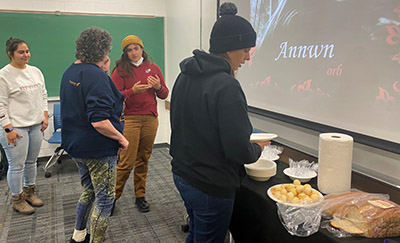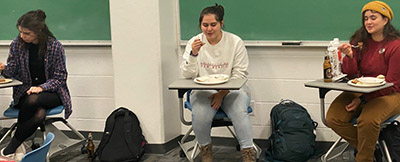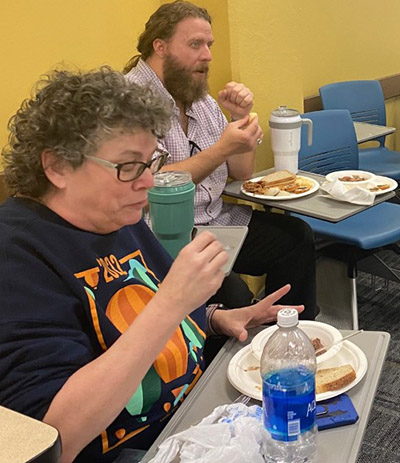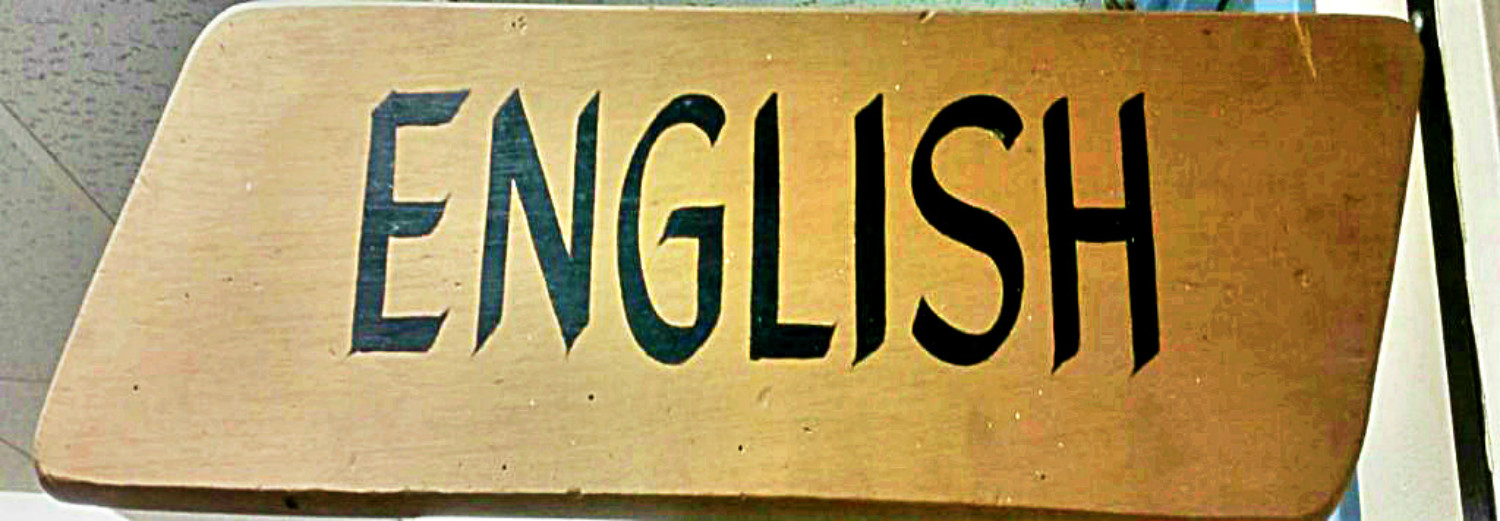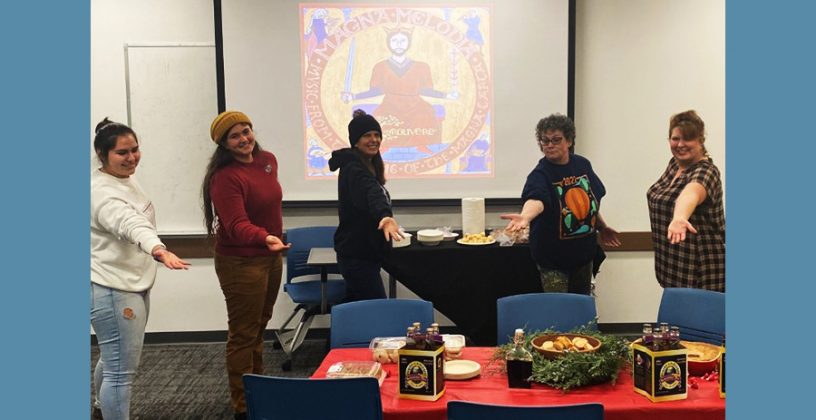Jessie Bonafede took a different approach to celebrating the end of the semester with the students in her English 2630 British Literature I class: an in class soiree featuring music and recipes that predate 1800, the cutoff date for the class’s survey of British literature.
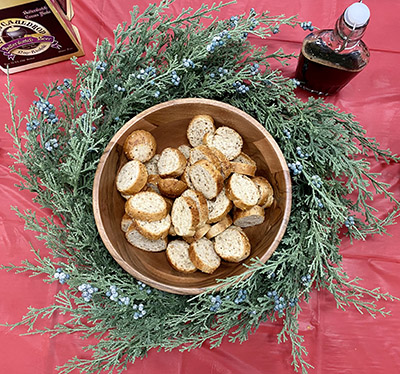
Jessie mentioned that, “Both music and food featured prominently this semester. It began with students asking me to include weekly playlists of music matching the time period of the literature we were reading for that week. This allowed me to consider ways of expanding our discussion of literary genres, tropes, and traditions alongside additional cultural features and developments, including modern musicians making use of this past, like the Trouvere Medieval Minstrels and Scots folk group Malinky.” Later Jessie said that she had decided to make soul cakes for their class meeting on October 31, also featuring discussions of the danse macabre and medieval views of the tritone “diabolus in musica” chord. “Making medieval soul cakes led me down a rabbit hole of socioeconomics and issues of access as I encountered beer barm, or brewer’s yeast, for the first time. I was delighted how enthusiastically my students ate the cakes and inquired after the process,” Jessie reported, which gave her the idea to feature both music and cooking as extra credit options in her English 2630 class. “Students had the option to earn extra credit by either making a playlist for one of the texts we read this semester and reflecting on their selections in accordance with major themes from the literature, or to make a pre-1800s recipe, either British or other, allowing students to investigate the history of their favorite foods and reflect on the significance of food in culture past and present. I was surprised that most students opted into the extra credit and collectively requested a party in which they brought their recipes for the class to try.”
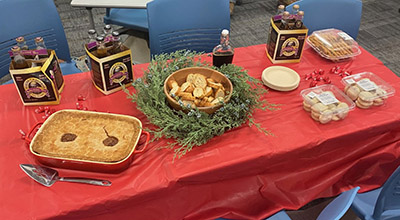
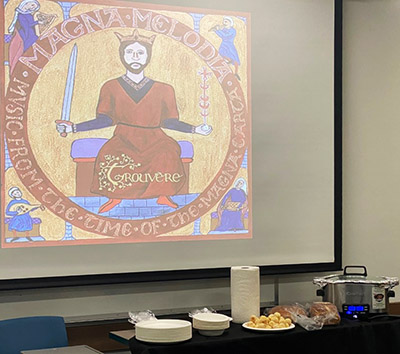
The feast included recipes from the fifteenth century recipe book from King Richard II’s court, The Forme of Cury, as well as other recipes from medieval Brittan and Brazil:
· Toastie: Red wine, ginger, honey.
· Vegetable Pottage: Turnips, parsnips, purple carrots, butter beans, mushrooms, leeks, and onions with vegetable stock, rosemary sage and thyme, a little red wine and balsamic vinegar, plus old-fashioned oats.
· Pão de Queijo, Brazilian Cheese Balls: Cassava root flour, tapioca flour and a cheese from Minas Gerais.
· Scottish Scones – with blueberries.
· Apple Pie: Brayed apples, pears, and brandy-soaked dried figs with cinnamon, ginger, coriander, and clove for spices all baked in a butter-rich wheat pastry.
